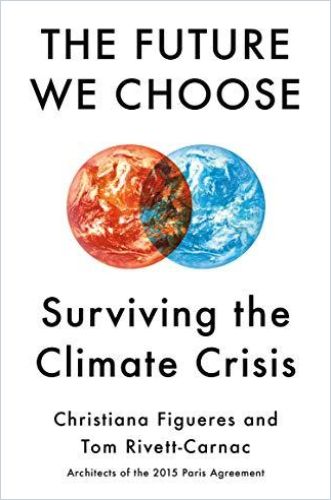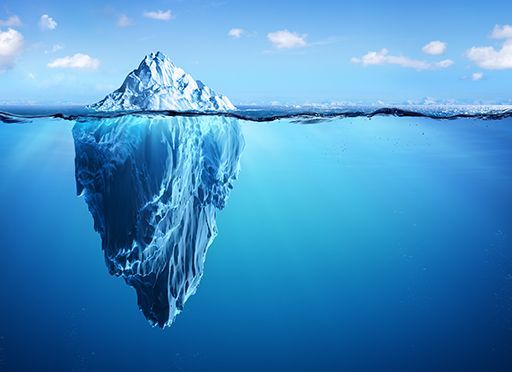Climate change activists Christiana Figueres and Tom Rivett-Carnac urge you to change your mind-set and take positive action.

Stubborn Optimism
Swedish teen Greta Thunberg inspired worldwide protests, spurring young people to demand that adults, especially those in power, confront the climate crisis. Many people feel similar despair about global inaction, but they don’t do anything at all.
Environmental and social change experts Christiana Figueres and Tom Rivett-Carnac cofounded Global Optimism and offer answers about what you can do. They’ve dealt with serious global issues and served as lead negotiators for the Paris Agreement. They know what’s at stake and believe the growing emergency demands fervent optimism – not despair.
As Richard Branson said, “There could not be a more important book.” Forbes summed the book up nicely by saying, “…the authors recommend a mind-set for climate activism that rests on three attitudes: radical optimism, endless abundance and radical regeneration.” And Kirkus Reviews called it, “A practically minded manifesto for personal action in the face of climate change.”
Climate Change
The Earth entered the Anthropocene geological age in the 1970s. In the previous era, the Holocene, the planet’s temperature remained stable for 12,000 years. Figueres and Rivett-Carnac cite science that conclusively demonstrated the rise of CO2 in the atmosphere since 1960.
We continue to pursue economic growth through the unbridled extraction and burning of fossil fuels, with a fatal impact on our forests, oceans and rivers, soil and air.Christiana Figueres and Tom Rivett-Carnac
In 2015, 195 nations signed the Paris Agreement, committing to reduce emissions and wean their economies from fossil fuels. Figueres and Rivett-Carnac insist that climate deniers are protecting entrenched fossil fuel industries in the face of an existential threat to everybody else.
Net-Zero Emissions
Figueres and Rivett-Carnac explain that humans must reach carbon neutrality – releasing only the level of greenhouse gases Earth can absorb – by 2050. They concede this is an ambitious goal.
Figueres and Rivett-Carnac name certain areas as particularly vulnerable to climate change: the Arctic, the boreal forests of the northern hemisphere and the Amazon rainforest. If climate change damages these areas beyond repair, they warn, the domino effect would be devastation, starting with runaway temperature increases.
Two Futures
Figueres and Rivett-Carnac explain that Paris Agreement nations committed to keeping temperature rise to less than 2oC [3.6 °F] more than preindustrial levels, and preferably under 1.5oC [2.7 °F]. Current human activity is on track to raise global temperature 3.7oC [6.7 °F] by this century’s end. That, the authors make clear, is a catastrophic threshold, but warming could go even higher.
Quick action, including ending fossil fuel extraction, can keep temperature rise below 1.5oC. But, Figueres and Rivett-Carnac caution, of all the challenges humanity faces, vanquishing hopelessness will fuel the greatest momentum to achieving this scenario.
Stubborn Optimism
Disheartening climate change news, the authors fear, causes people to react with a sense of learned helplessness.
To survive and thrive, we must understand ourselves to be inextricably connected to all of nature. We need to cultivate a deep and abiding sense of stewardship.Figueres and Rivett-Carnac
The authors cite the Buddha’s teaching that optimism is a goal and the first step of enlightenment, and that people actively create their attitudes. To bolster your mind-set, Figueres and Rivett-Carnac encourage you to remember that more than 100% of Costa Rica’s power and 50% of the United Kingdom’s power already comes from renewable sources. They offer these examples to help you stay stubborn and optimistic.
Endless Abundance
Figueres and Rivett-Carnac lament that most people grow up feeling that they have to compete to win what they want or need. Competition can fuel progress, but if it dominates decision-making, panic ensues.
The better path is equanimity, which leads to collaboration – instead of hoarding – to solve problems. When resources are objectively scarce, the authors insist that only collaboration works. Everyone, Figueres and Rivett-Carnac maintain, is in one boat, Earth. Humanity’s mind-set must be one of “shared winning.” To the authors, the only route forward is change through democratic means.
Action
Figueres and Rivett-Carnac call upon you to take one or two of these actions to change the world for the better: Resist toxic nostalgias; cultivate a positive vision of the future; combat lies about climate change on social media; become a better consumer by reducing, reusing and recycling; reject fossil fuels; reforest the Earth; vest in a clean economy; support gender equality and become politically active.
Companies that shy away from considering the future of the planet are also getting awkward questions from customers (keep asking them!) and investors.Figueres and Rivett-Carnac
Cut your emissions in half by 2030. Challenge yourself to accomplish more. Build a better story, one in which the world makes the transition to a renewable future.
Attitude and Deed
Figueres and Rivett-Carnac write from a singular perspective. Their theme is that mind-sets must change before the world can change for the better. Their practical examples – both of the horrors of unchecked climate change and of the actions readers can take to forestall it – stem from a position of psychological optimism. Most books seeking to inspire readers to political, social or cultural action use the action itself as fuel for inspiration. Figueres and Rivett-Carnac insist that attitude is primary, and that changes in the world are manifestations of that attitude. This makes their book seems less like a polemic argument and more like basic, sane advice applicable to almost any crisis. And, it must be said, their guide to positive action avoids fantasy and offers steps most readers can take.
There are many inspiring calls to action regarding climate change. Among them are No One Is Too Small to Make a Difference by Greta Thunberg, The Future Earth by Eric Holthaus, How To Avoid a Climate Disaster by Bill Gates, The Uninhabitable Earth by David Wallace-Wells and The Story of More by Hope Jahren.




